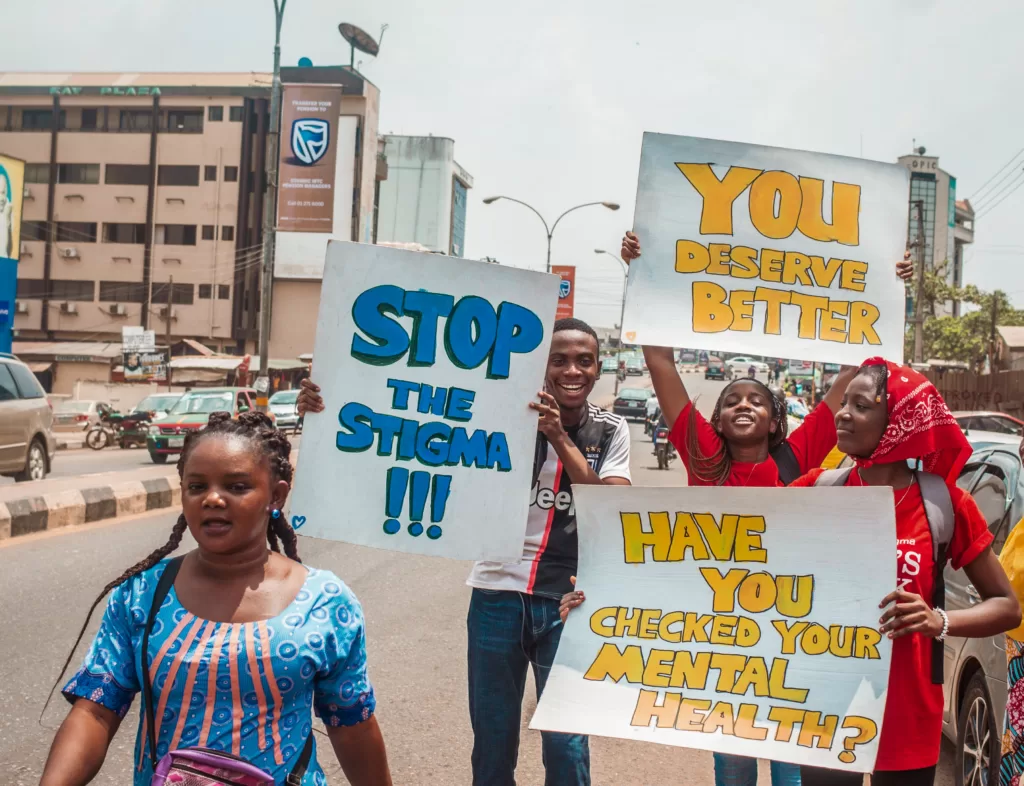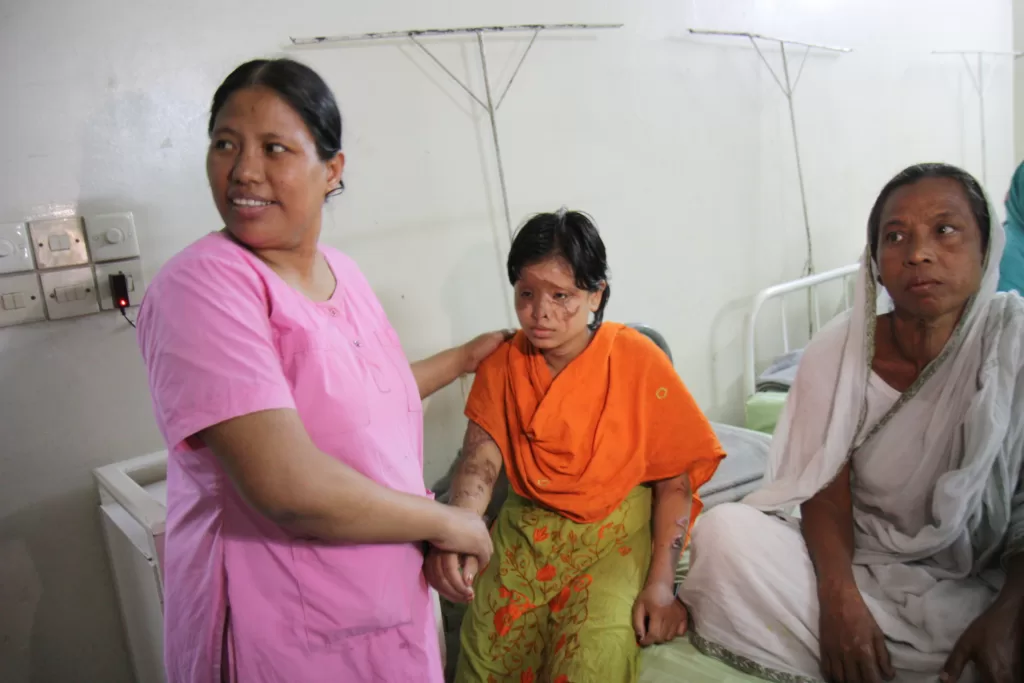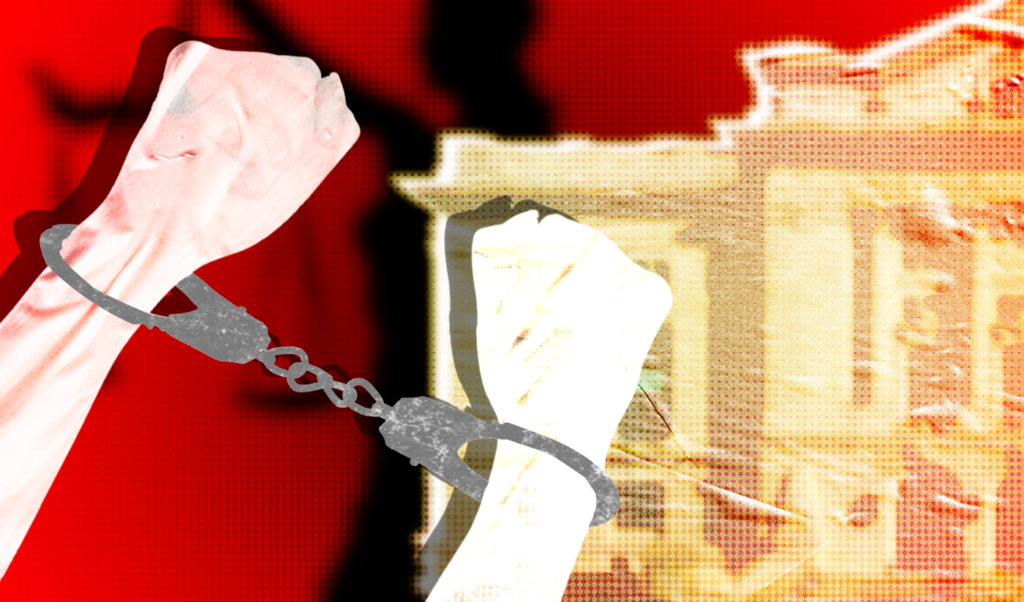Nigeria missed the unique opportunity to address its anti-suicide laws in the new mental health bill.
 Efforts can be made to protect vulnerable individuals by creating avenues in communities for them to seek timely support. : Damilareadeyemi (Wikimedia Commons) CC BY-SA 4.0
Efforts can be made to protect vulnerable individuals by creating avenues in communities for them to seek timely support. : Damilareadeyemi (Wikimedia Commons) CC BY-SA 4.0
Nigeria missed the unique opportunity to address its anti-suicide laws in the new mental health bill.
Content warning: This article discusses sensitive topics such as suicide that some readers may find distressing.
Nigeria passed a new mental health bill in January 2023. It was a long time coming but there are questions if it does enough to protect those at risk of suicide or self-harm.
The National Mental Health Bill 2021 replaces the Lunacy Act of 1958 which deemed individuals with mental health conditions as dangerous and a threat to themselves and society. That act which bore colonial influences had no clear definition of mental health and failed to meet global policies on mental health and human rights, prescribed seclusion and stripped individuals with mental health conditions of basic human rights.
While the new mental health bill is revolutionary in its language, acknowledgement of human rights and commitment to mental health promotion, it fails to address the issue of criminalising suicide.
Nigeria remains one of at least 17 nations with existing anti-suicide laws.
The criminalisation of suicide still poses a major threat to advances in mental health in Nigeria. Several groups including the Association of Psychiatrists in Nigeria have been vocal about the need for change. The association has raised the alarm about the dangers of criminalising suicide and argues that individuals with suicidal intentions must be met with a more humane response.
Organisations like Nigerian Mental Health in collaboration with other non-governmental organisations launched the Decriminalize Attempted Suicide in Nigeria petition which has received more than 3,000 signatures. Other organisations like the Suicide Research and Prevention Initiative and Sunshine Series continue to raise awareness and have hotlines dedicated to supporting individuals during times of crisis.
Nigeria doesn’t have to look far for an example of how a new bill could work. In February 2023, Ghana took a significant step towards decriminalising suicide by passing the Criminal Offences (Amendment) Bill, 2021.
A report commissioned before that bill revealed the majority of individuals attempting suicide hailed from low socioeconomic backgrounds and listed issues such as health, poverty and family problems as key motivations behind attempted suicides. Given the economic, political and sociocultural similarities between Nigeria and Ghana, there are valuable lessons to be learned. Ghana is a prime example of a country that listened to the mental health concerns of its people and is making the necessary changes to improve mental health outcomes.
Nigeria’s failure to decriminalise suicide creates a significant challenge to progress and contradicts what the mental health bill says. The laws outlined in Section 327 of the Criminal Code Act and Section 231 of the Penal Code Act are inconsistent with the objectives of the mental health bill. The bill has several objectives, including the protection of “persons with mental and substance abuse disorders from discrimination, victimisation and unfair treatment by employers, academic institutions and agencies”. The criminalisation of suicide undermines this objective.
An amendment to mental health policy requires a corresponding amendment to criminal law that reflects a positive change. While the mental health bill advocates for treatment and mental health promotion, the prison system in Nigeria is not rehabilitative, and the inhumane conditions are likely to lead to new mental health conditions or the exacerbation of existing ones.
Individuals jailed based on these anti-suicide laws, upon release face, increased discrimination and the addition of a criminal record, making it extremely difficult to become assimilated into the community.
The criminal and penal codes discriminate against individuals with mental health conditions. Nigeria’s mental health bill underscores treatment and rehabilitation but success in these efforts require individuals to feel safe enough to speak up about their mental health conditions and seek help. This is impossible if individuals dealing with mental health conditions risk persecution from the family, community and authorities.
Given the collective culture of Nigeria, the criminalisation of suicide has far-reaching impacts on the individual, their family, and the larger community. Criminalising attempted suicide hinders suicide surveillance which could provide relevant data and suicide rates in Nigeria to create effective prevention programmes.
If the motivation for this law is based on the sanctity of life, then efforts can be made to preserve life by protecting human rights while creating avenues in communities for individuals to seek timely support. Faith or spirituality can be leveraged as a positive value by promoting the civic engagement of religious leaders in communities and utilising religious institutions as a haven for those with mental health conditions. Religious leaders serve as gatekeepers and can be trained to provide non-specialised mental health support.
Rather than using legal consequences as a suicide prevention strategy, emphasis could be placed on promoting mental health education and awareness to reduce the stigma of suicide. There is an urgent need for interventions in practice and policy.
A good first step would be establishing a national helpline to provide mental health support. The free helpline established by the Sunshine Series during the COVID pandemic to address psychosocial issues in the capital city, Abuja, could be evaluated for possible rollout across all of Nigeria.
If this article has raised issues for you, or if you’re concerned about someone you know, visit https://findahelpline.com/i/iasp.
Deborah Adenikinju is a research and equity consultant at Morehouse School of Medicine, Kennedy Satcher Center for Mental Health Equity and a member of the Implementing Sustainable Evidence-Based Interventions through Engagement (ISEE) lab at New York University. Adenikinju is a global mental health researcher and an implementation scientist with a keen interest in the intersection of mental health, religion, and human rights.
Originally published under Creative Commons by 360info™.
Editors Note: In the story “Decriminalising suicide” sent at: 17/04/2023 11:58.
This is a corrected repeat.














